Description
This attractive display includes 2 swords owned by Francis Raymond, Jr.; a presentation grade M1850 Staff & Field Officer’s sword and a post-war fraternal sword. The M1850 features a bright unmarked 32 1/4″ slightly curved blade with double fullers, etched with stands of arms and “US” on the upper third; “IRON PROOF” on spine. Gilt brass hilt of typical form with pierced “US”, showing greater detail than standard models. Silver grip with brass wire. Brown metal scabbard with engraved brass mounts, the top mount with a large “US” in laurel leaves. Drag with wear as typically found on field-used examples. The fraternal sword with blackened cruciform hilt with knight’s head pommel, black wood grip with inlaid cross, and chain knuckle guard (shortened a few links). Bright diamond- section 29″ blade with “F. Raymond Jr.” in gold; reverse ricasso with “E.A./ARMSTRONG/DETROIT/MICH.” in gold. Chrome-plated scabbard with ornate cast mounts, marked “F. Raymond Jr.” in gold between top and middle mounts. Both swords came from Raymond’s descendants. Swords displayed in a custom walnut case with burgundy velvet backing; bearing gold plaques indicating the swords’ owner with Civil War record and battle honors.
Francis Raymond, Jr. was 19 when he enlisted on 7/24/1862 in Detroit as a sergeant in the 24th Michigan Infantry, part of the famed Iron Brigade. He transferred to Staff & Field in the regiment on April 1st, 1863, at which time he likely obtained the M1850 Staff & Field Officer’s sword in this display. On the first day of the Battle of Gettysburg, Jul 1st, 1863, the 24th Michigan was heavily engaged and suffered 363 casualties out of 496 men, the highest casualty rate of any Union regiment in the battle. On April 1st, 1864, Raymond took a commission as 1st Lieutenant and Adjutant of the 1st Michigan. Just over a month later he was wounded at the Battle of the Wilderness. Raymond served until the end of the war and mustered out on July 9th, 1865.


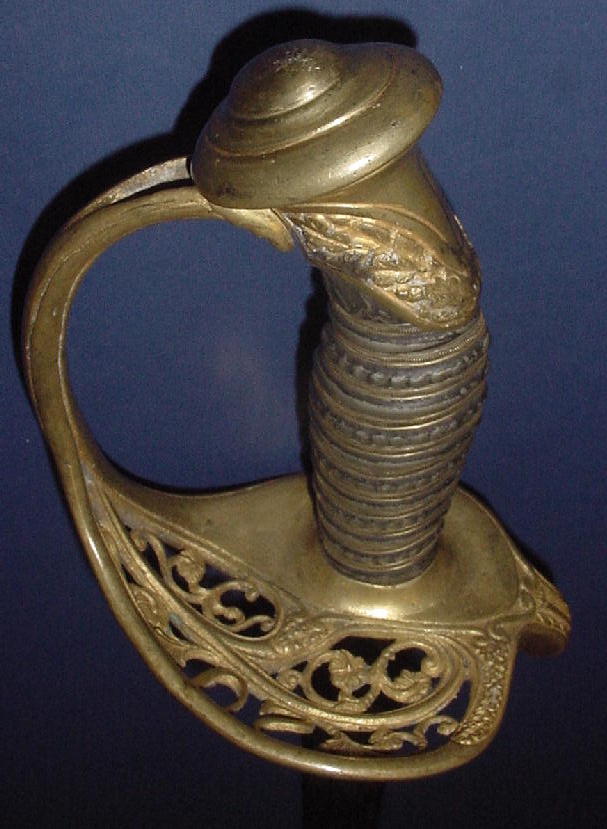
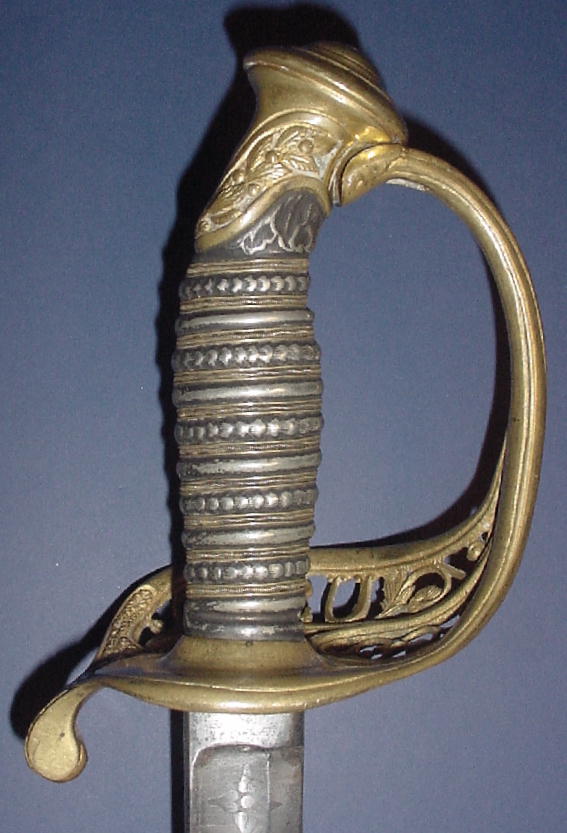
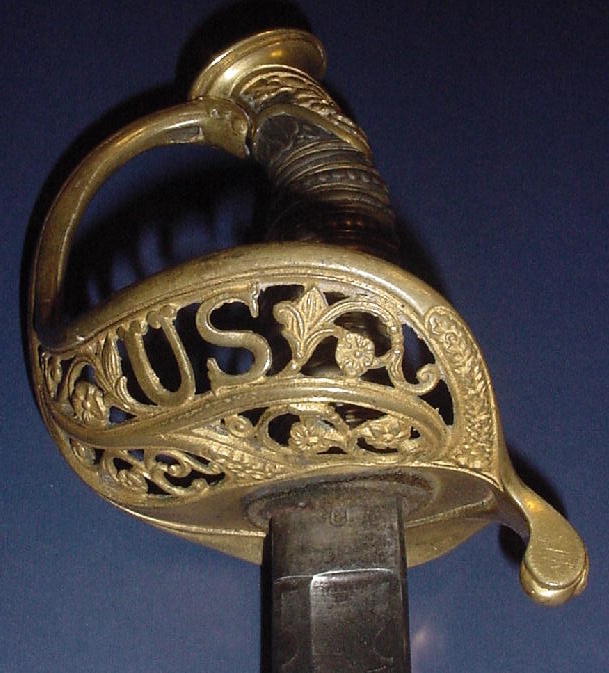

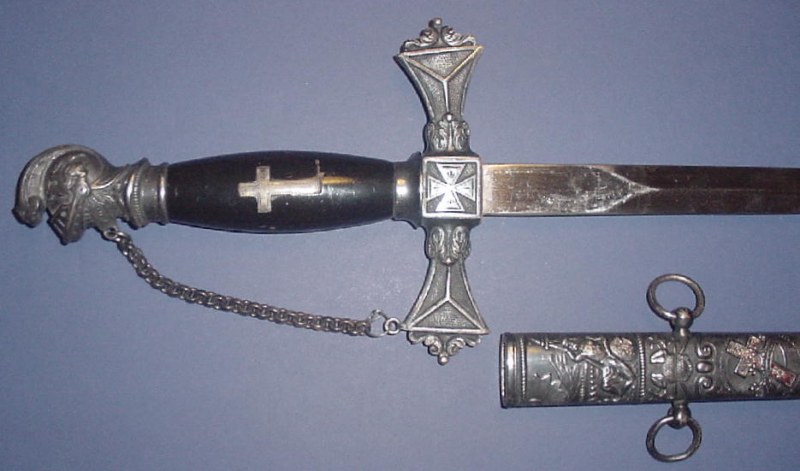


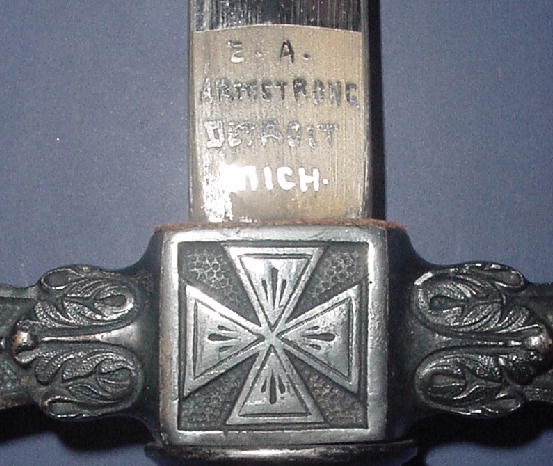
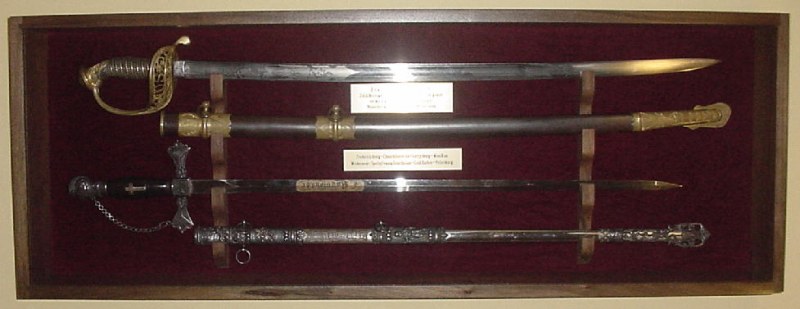
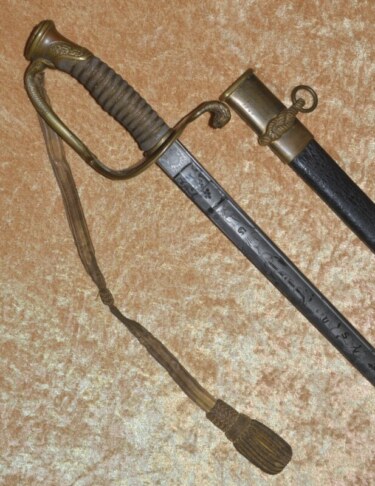 Fine Presentation Civil War M1852 Naval Officer’s Sword
Fine Presentation Civil War M1852 Naval Officer’s Sword 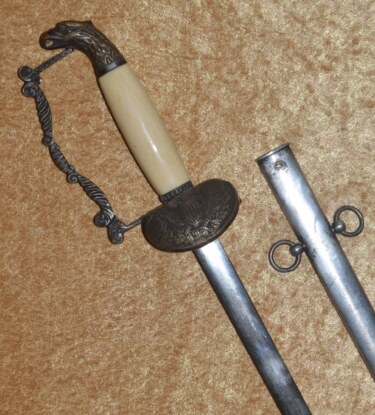 US Eagle-head Infantry Officer’s Sword, ca. 1830-40
US Eagle-head Infantry Officer’s Sword, ca. 1830-40 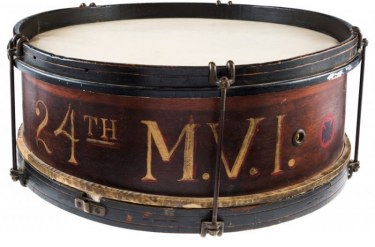 24th Michigan “Iron Brigade” Painted Snare Drum.
24th Michigan “Iron Brigade” Painted Snare Drum. 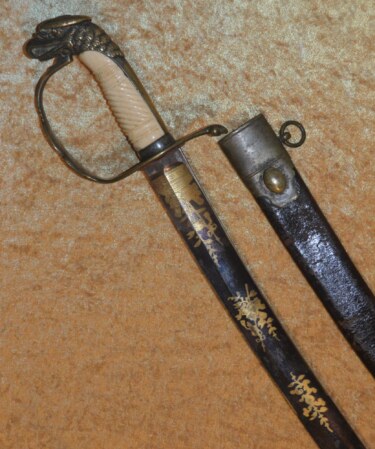 Exceptional US Eagle Head Mounted Artillery Officer’s Saber, ca. 1810-20
Exceptional US Eagle Head Mounted Artillery Officer’s Saber, ca. 1810-20